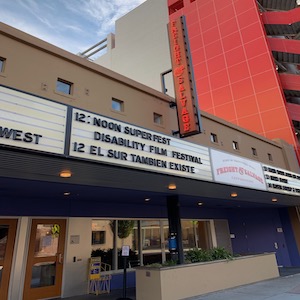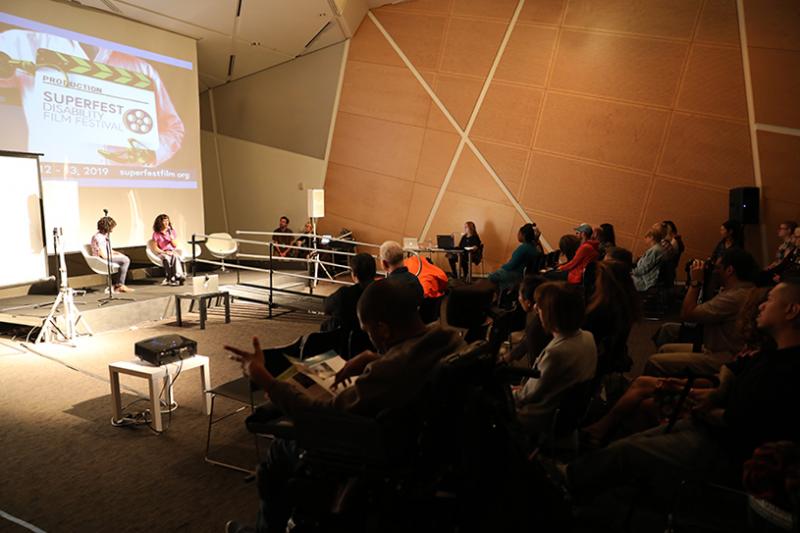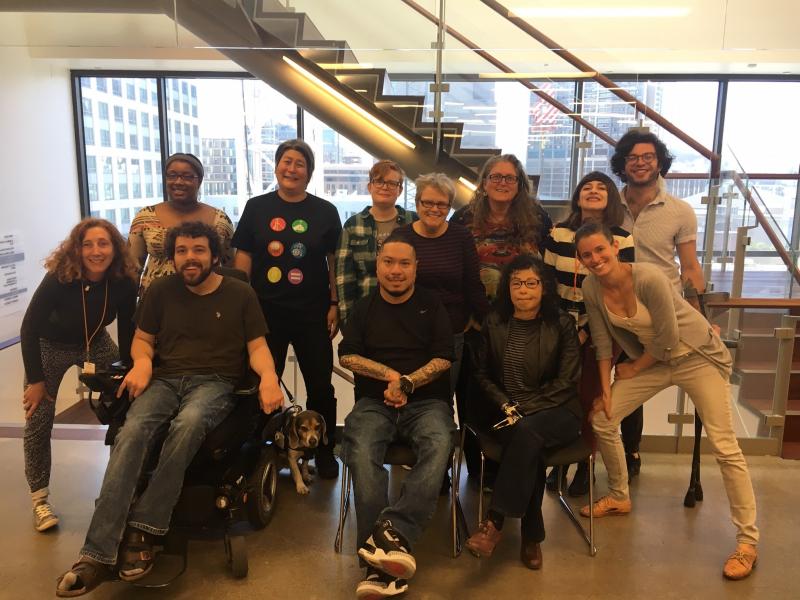Superfest 2019 is one for the books! Thank you to everyone who attended, supported, encouraged from afar, or volunteered at the 33rd Superfest Disability Film Festival: the event was a huge success!
We screened fifteen films for packed houses over the course of two days in downtown San Francisco and downtown Berkeley. This year we were able to host a bigger audience than ever before, thanks to our larger Berkeley venue and adding a second screening at the Contemporary Jewish Museum. Thank you to Freight & Salvage and The Contemporary Jewish Museum for hosting this unique event!

During the festival, we hosted three panel discussions that explored disability filmmaking, access as an art form, representations, and the jury selection process. A theme emerged in all three panels: we need more films made by and for disabled people in Hollywood.
Here's a brief overview of all three screening events at Superfest:
Saturday we were in downtown Berkeley at The Freight and Salvage, showing five shorts and one feature. The films were shot and filmed in the US, UK, Australia, and Germany. The screening included a panel discussion with disabled filmmakers/actors from Gaslit, Invalid Corps, and Song for Rent, moderated by former Superfest filmmaker and 2018-2019 Juror, Reid Davenport.
The films showcased covered a range of topics from Aneta Brodski (of Deaf Jam) a deaf teen living in New York City who discovers the power of ASL poetry as she prepares to be one of the first deaf poets to compete in a spoken-word slam to the complex story of a young disabled woman (in Gaslit) who fights to hold on to her identity in the face of the world’s assumptions and strives for independence from her parents, who doubt her ability to become a mother.
On Sunday morning we had a short film program which featured seven films from five countries, looking at a range of topics from the beauty and fear of daily life with dementia in the Oscar-nominated short Late Afternoon to the activism of a polio-survivor who has spent his life planting trees in Burkina Faso. This screening featured open audio description, though we provided an adjacent screening room for people who prefer to watch without this feature.
Following the screening, disability trainer, Superfest juror, and Glamputee Alex Locust moderated a discussion with filmmaker Cheryl Green (Stinky Chicken Dog 2 and audio describer for Inclinations, Late Afternoon and Chin Up).
Later in the afternoon on Sunday, we had our final screening of the festival. In this closed audio description screening (open audio description was provided in an adjacent screening room), we explored two powerful stories of disability outside the U.S. with a short film from Iran and a feature film from India. These stories were deeply moving-- though completely different topics, celebrating how disability can bring people together, which is certainly a sharp contrast to the mainstream stories that circulate around disability.

Excellent films abounded, but the film festival simply could not have happened without the tremendous help from our certified festival volunteers. Each and everyone fulfilled vital roles from handing-out programs to operating the concessions stand.
Of particular note was ticket-taker, Eric Hunt. Much to the organizers’ surprise, this bright-eyed and eager-to-help volunteer hadn’t actually signed up to volunteer in advance, but was quickly discovered to be Dr. Eric Hunt, father to Longmore Student Fellow Maxfield Hunt, who had surprised his son and wanted to show him his support! Thank you, Eric and all the other volunteers for their dedication to making this year’s Superfest run seamlessly!

That Superfest 2019 is complete is bittersweet because this was the Longmore Institute’s final year partnering with LightHouse for the Blind and Visually Impaired to run the festival. Thanks to their partnership we have grown the festival in films, audience, and quality since we hosted our first event together, The Dissies, back in 2013. We are very grateful for these years of collaboration.
And, finally: a quick shout-out to our film selection committee of 100% jurors with disabilities! Every year, we get hundreds of submissions for Superfest and we appreciate the dedication and care that goes into each screening and the entire decision-making process. Interested in being on the jury for 2020? Contact Emily Beitiks.
Have a disability-centered film you’d like to submit for consideration for Superfest 2020? Applications open in December - spread the word! Visit http://www.superfestfilm.com/submissions for more details.